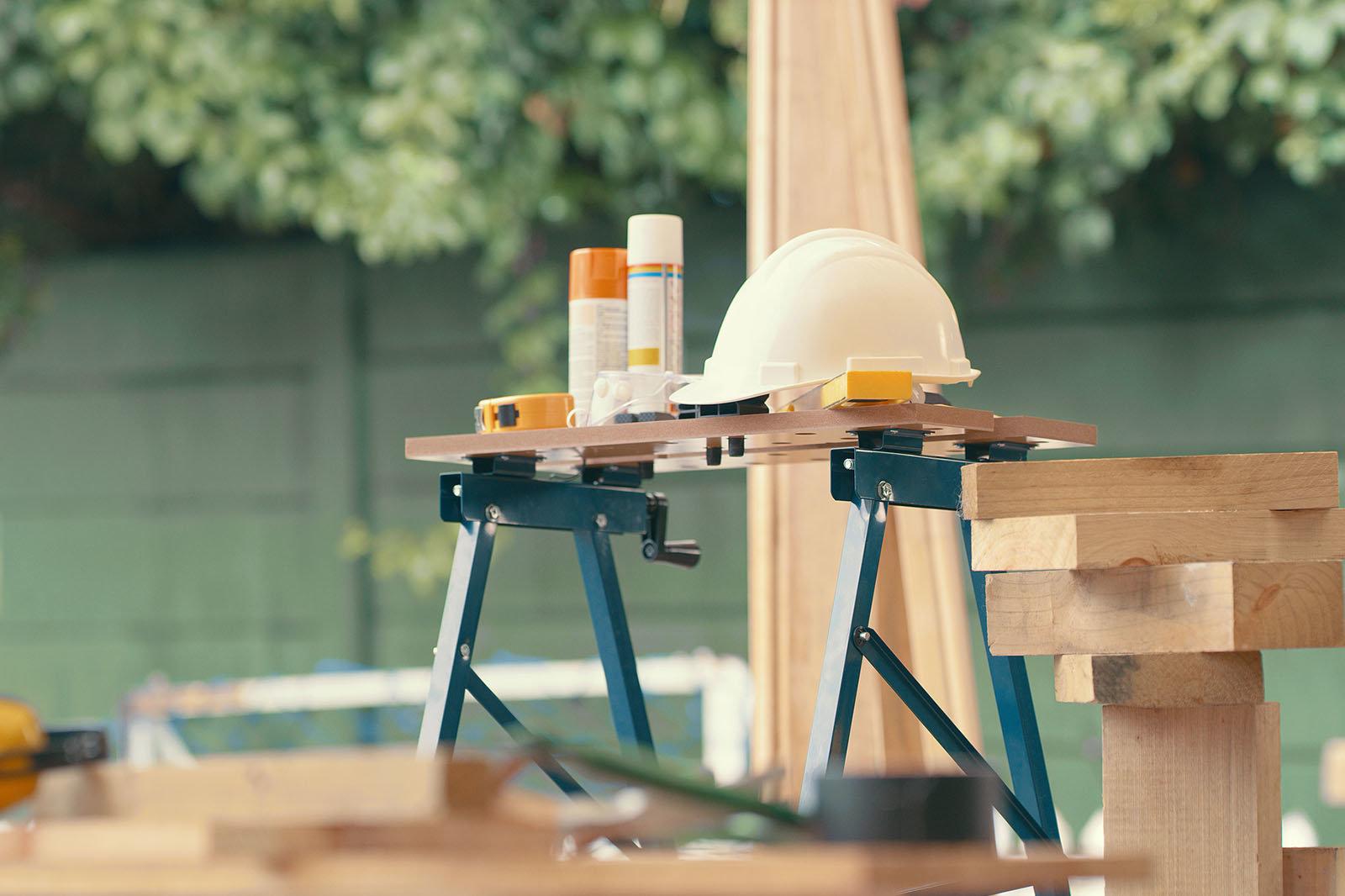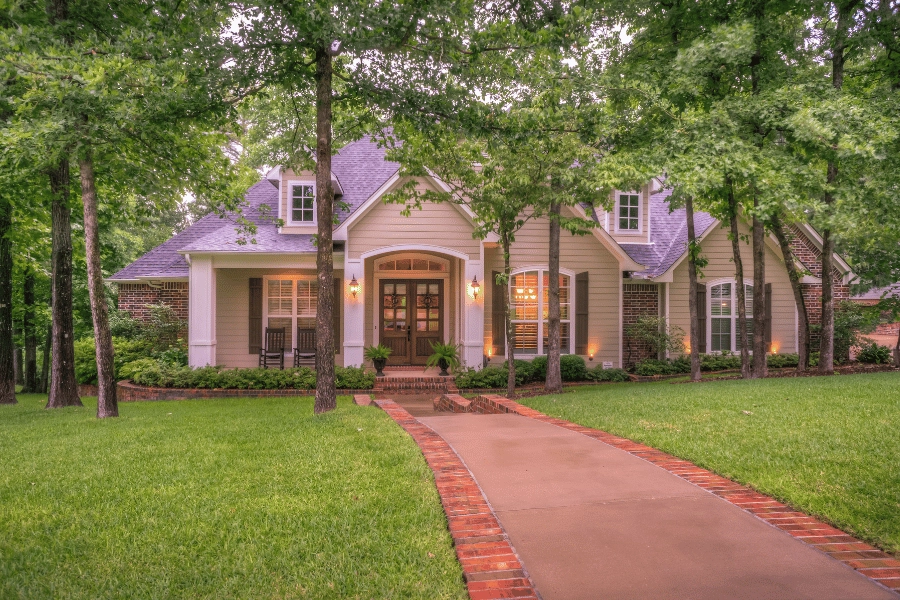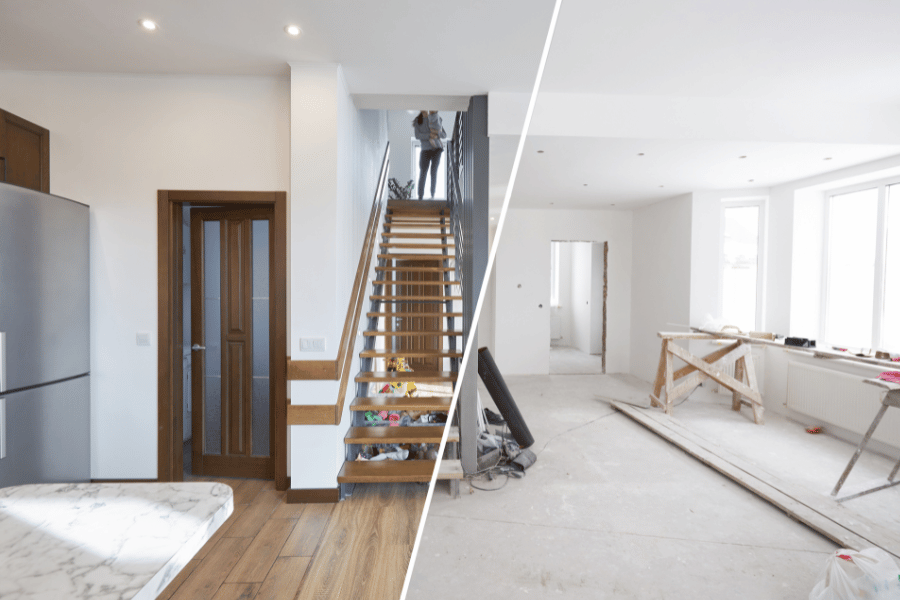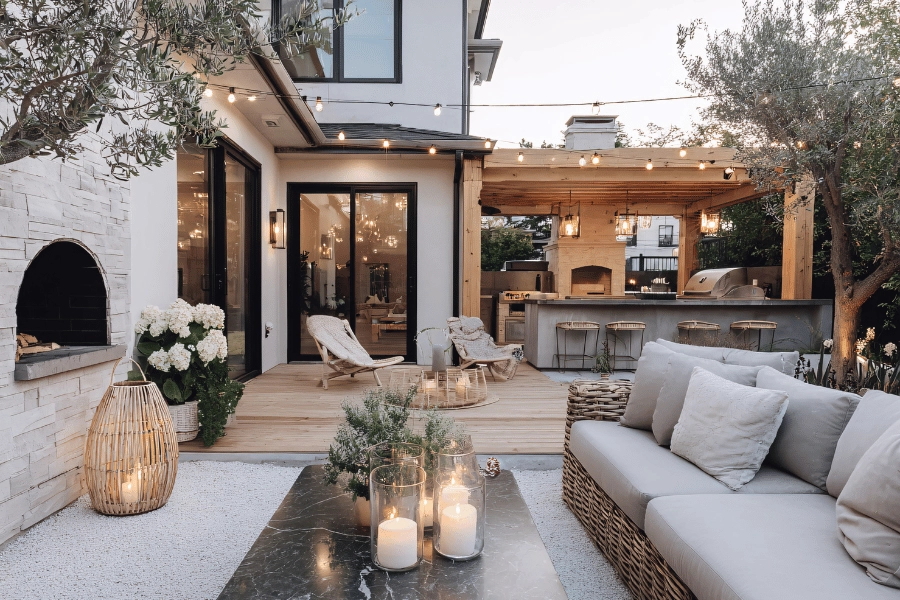The Complete Guide to Home Addition Costs [2025]
Are you interested in expanding your home? Let's explore everything there is to know about the cost of a home addition.
Are you outgrowing your current space but love your neighborhood? Adding something new to your house is a great way to increase its square footage, home value, and functionality.
The cost of a home addition can depend greatly on many things, such as the space size, the materials used, the labor cost, and the project's complexity. Basic home renovations can only take you so far, so building a home addition may be critical.
This comprehensive guide breaks down everything you need to know about home addition costs in 2025.
1. Average Home Addition Costs
Home additions typically range from $21,993 to $83,339, with most homeowners spending around $51,046 on average. However, costs can vary dramatically based on your addition's type, size, and complexity.
The average cost per square foot for a room addition ranges from $80 to $200 when adding an entirely new room, though this can fluctuate based on numerous factors.
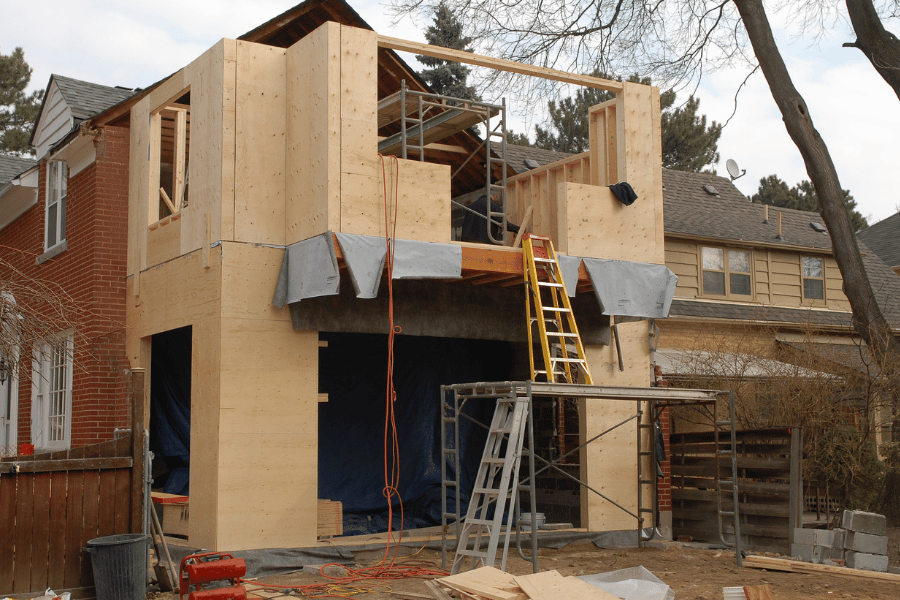
Bedroom Addition
- Cost Range: $22,000 - $58,000
- Per Square Foot: $110 - $230
The most common type of room to add is a bedroom. You can add an extra bedroom to host or a family room for game nights.
Adding a bedroom increases your home's functional space and value. Costs vary depending on size and whether you include a closet or en-suite bathroom.
Bathroom Addition
- Cost Range: $35,000 - $85,000
- Per Square Foot: $200 - $400
Bathrooms are among the most expensive additions due to extensive plumbing, electrical, and waterproofing requirements.
The square footage and extent of the new plumbing and electrical needed in a bathroom addition will significantly influence the price.
Living Room Additions
- Cost Range: $25,000 - $65,000
- Per Square Foot: $125 - $250
Basic living spaces are among the most straightforward additions, requiring standard electrical work and flooring but minimal plumbing.
The cost of this addition depends on the room's square footage and the HVAC and electric additions needed.
Kitchen Additions
Kitchen additions are among the most complex, ranging from $250 to over $750 per square foot. A complete kitchen addition typically costs:
- Small Kitchen (150 sq ft): $45,000 - $95,000
- Medium Kitchen (250 sq ft): $75,000 - $150,000
- Large Kitchen (400 sq ft): $120,000 - $250,000
2. Key Cost Factors That Affect Your Addition Budget
Here is a breakdown of some of the costs you should expect to incur when building a home addition:
Labor
Payments to contractors, skilled professionals, and labor associated with the construction process. The labor cost will vary depending on the complexity of the project and the rates where you live.
Material Choices
The cost of building materials such as lumber, concrete, roofing, windows, doors, insulation, siding, and flooring.
Your material selections significantly impact costs:
- Budget materials: Can reduce costs by 15-25%
- Premium materials: Can increase costs by 30-50%
- Luxury finishes: Can double your per-square-foot costs
Size and Square Footage
The most obvious factor is size. Every 1,000 square feet added to a home boosts the sale price by more than 30%, but larger additions require proportionally more materials and labor.
Foundation Requirement
If your addition requires a new foundation, expect to add $4,011 - $14,819 to your project cost. Additions built over existing structures, like basements or crawl spaces, can reduce this expense.
Local Building Codes and Permits
Raleigh's building codes and permit fees can add $2,000 - $8,000 to your project. Working with experienced local contractors familiar with Raleigh regulations can streamline this process.
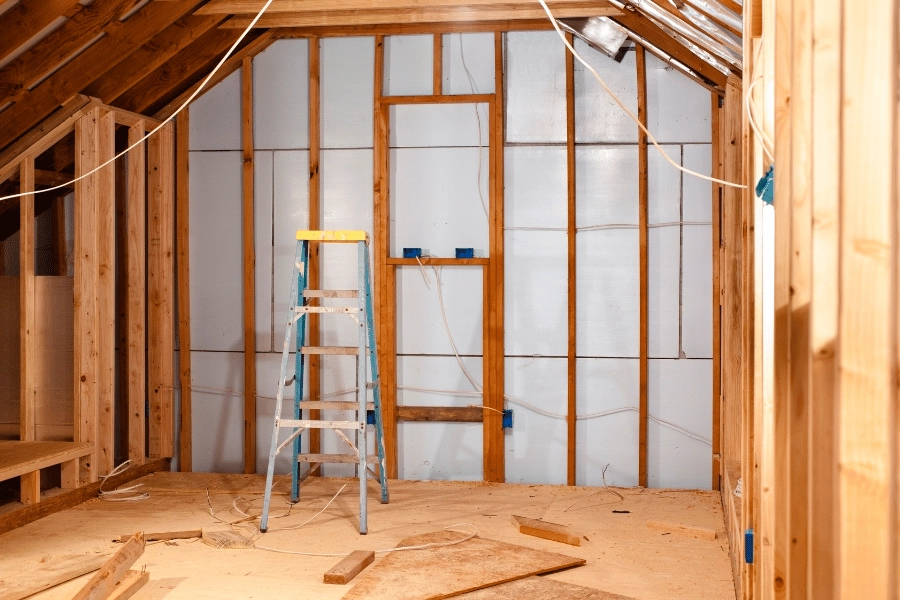
3. Additional Costs to Consider
Some home addition cost factors stand out more than others. An addition's size, type, and design make a noticeable impact, and many local and labor-related prices also tip the scales. Here are some factors that impact home additions:
Project Size and Scope
The cost of adding square footage to a home will vary depending on the home, material, and type of room you envision.
Hiring a general contractor is crucial in determining the cost of your home addition. A structural engineer and an architect will be needed for more complex builds.
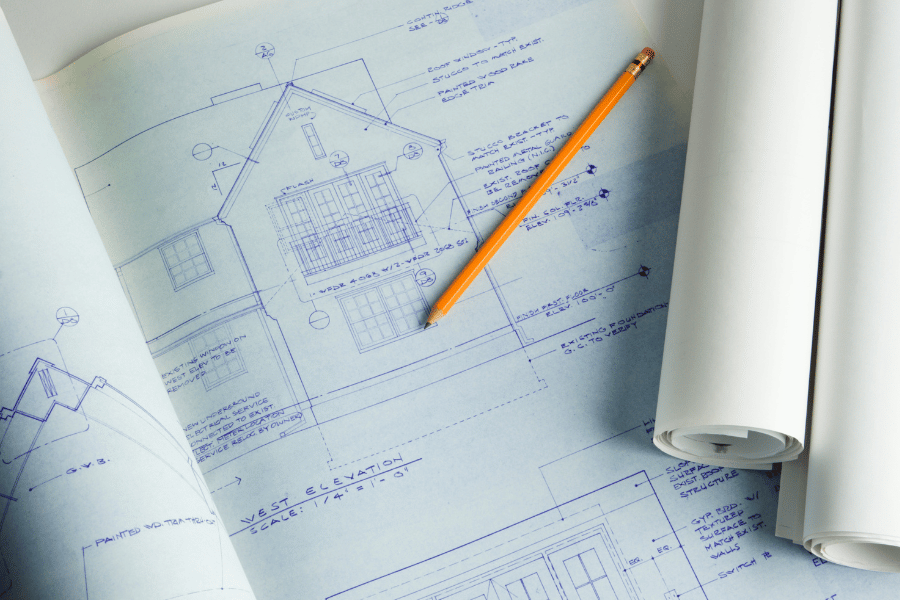
Labor Expenses
About 40% to 60% of the cost of building a home addition goes toward labor. The majority of the work requires a licensed professional. Here are some standard rates for these.
| General Contractor | 10-20% of the project |
| Architect | 5-20% of the project |
| Plumber | $45-$200 an hour |
| Electrician | $50-$150 an hour |
| Carpenter | $75-$100 an hour |
Permits
When adding a new structure to your home, it is essential to not overlook the cost of building permits. More minor permits may cost around $500, but building a new structure can push a license up to $2,000.
Zoning Laws
Home additions must align with local zoning and building laws. Access to utilities, sewer drainage, and distance from your property line are a few things you need to consider.
Systems Integration
- Electrical work: $3,000 - $12,000
- Plumbing: $4,000 - $15,000
- HVAC extension: $5,000 - $18,000
Finishing Touches
- Flooring: $3,000 - $12,000
- Interior painting: $2,000 - $6,000
- Exterior finishing: $4,000 - $15,000
Unexpected Expenses
Always budget 10-20% extra for unexpected issues like:
- Hidden structural problems
- Code compliance updates
- Change orders
- Weather delays
4. Smart Strategies to Keep Addition Costs Down
When you are adding to your home, it may become expensive, so some things can help keep costs down. Here are some ways to do so:
Plan Efficiently
Design your addition to minimize structural changes to your existing home. Building up rather than out can reduce foundation costs.
Time Your Project Strategically
Construction costs fluctuate seasonally. Planning your addition during contractors' slower periods (typically late fall through early spring) can result in better pricing.
Consider DIY Work
While major structural work requires professionals, you might handle:
- Interior painting
- Simple landscaping restoration
- Hardware installation
- Basic cleanup tasks
Choose Multi-Purpose Designs
Design spaces that serve multiple functions. A home office that doubles as a guest room maximizes your investment.
Prioritize Low-Cost Features
Focus on elements that provide maximum visual and functional impact:
- Large windows for natural light
- Built-in storage solutions
- Energy-efficient features that reduce long-term costs
Get Multiple Quotes
Obtain at least three detailed bids from licensed contractors. Look beyond the bottom line to understand what's included in each estimate.
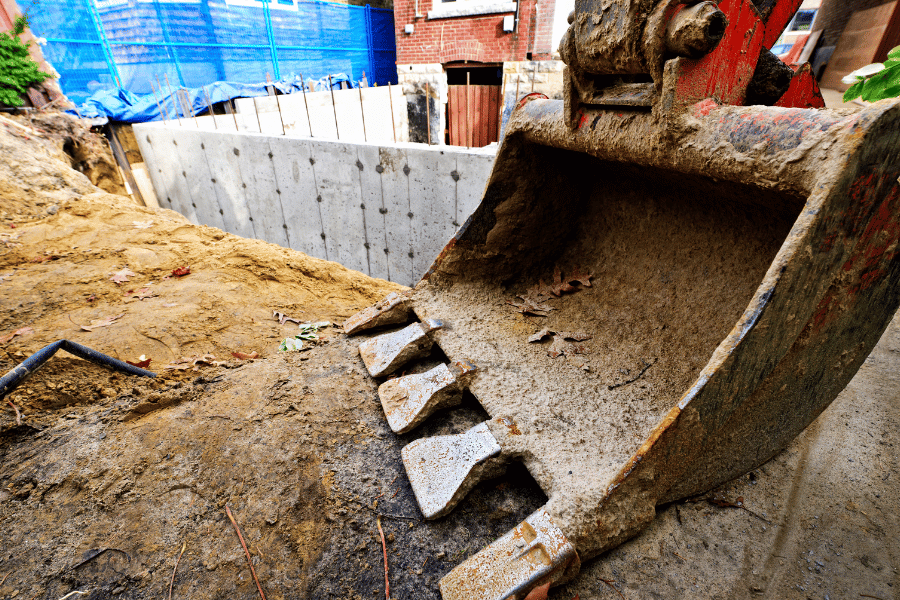
5. ROI on a Home Addition
The return on investment (ROI) on a home addition can vary depending on several factors, such as the size of the addition, the materials you choose, the labor cost, and the project's complexity.
The actual ROI you experience may be higher or lower depending on those factors. If you chose high-end finishes, you may be able to recoup more of the cost, but if you chose less expensive additions or cast, you may recoup less.
It is important to understand that the ROI of a home addition is not guaranteed and that many factors affect the value of the home, including the condition and location of the home, as well as current market conditions.
Factors That Maximize ROI
- Stay consistent with neighborhood values: Don't over-improve for your area
- Focus on functional space: Practical additions outperform luxury features
- Maintain architectural harmony: Additions should complement your home's existing style
- Consider local preferences: In Raleigh, outdoor living spaces and energy efficiency are particularly valued
6. When to Add vs. When to Move
Consider a home addition when:
- You love your neighborhood and location
- Your lot has space for expansion
- Moving costs would exceed additional costs
- Local market conditions favor staying put
- You plan to live in the home for five or more years
Consider moving when:
- Addition costs approach 25% of your home's current value
- Your lot can't accommodate the addition you need
- Major structural issues make additions impractical
- You desire a different neighborhood or school district
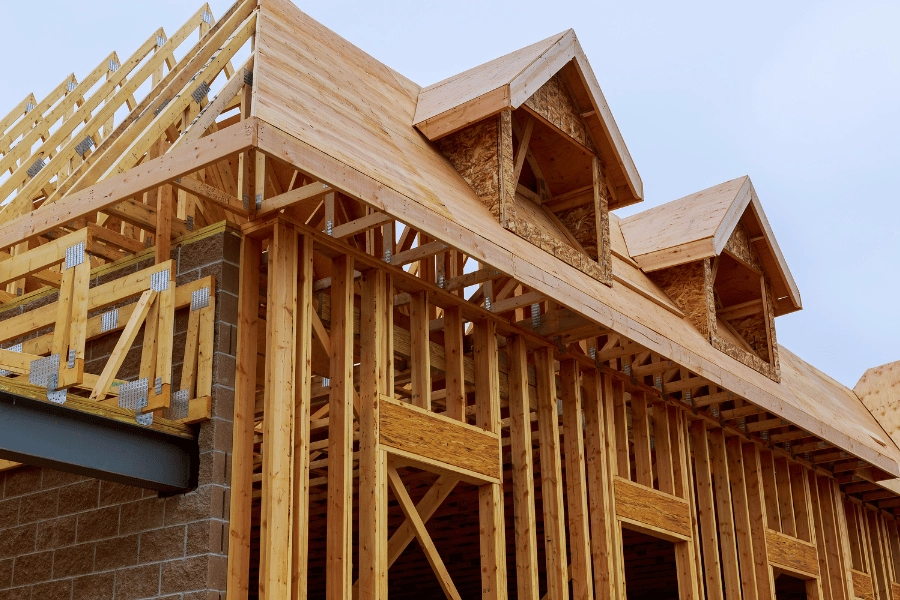
7. Home Addition Next Steps
A well-planned home addition can significantly transform your living space and increase your property value. Before beginning:
- Define your needs clearly: What functionality are you seeking?
- Set a realistic budget: Include 15-20% contingency for unexpected costs
- Research local contractors: Get multiple detailed quotes
- Understand permit requirements: Factor in time and costs for approvals
- Consider timing: Plan around the weather and your family's schedule
Methodology
Data was sourced from Angi and HomeGuide to determine what every homeowner should know about how much a home addition costs.
FAQS
How much does it cost to add 1,000 square feet to a house?
Based on a cost of $80 and $200 per square foot, you can expect to pay about $80,000 to $200,000 to add 1,000 square feet to your home.
Is it cheaper to build a house or add an addition?
Building up a two-story home can be generally cheaper than building out when constructing a new house. However, remodeling an existing home is more cost-effective than adding a second story.
Is a home addition worth it?
A well-executed home addition can increase the value of your home, potentially offering a return on investment when it comes to selling and a new, updated space to live in. However, not all home additions will provide the same return on investment.
What is the most expensive part of a home addition?
The foundation and framing are the two most expensive materials and parts when building a home addition, and you should be aware of them before starting the modeling.
How Much Does a Home Addition Cost? - The Bottom Line
Home additions represent a significant investment in your lifestyle and your property's value. While costs can seem substantial, the right addition can provide years of enjoyment while building equity in your home.
A home addition is an excellent option if you love your home but wish for more space or new rooms. Before you start the addition, you must figure out everything that goes into this time-consuming project and what addition would perfectly fit your needs.
Home additions are not the cheapest option, but they are much less expensive and less hassle than buying and moving to a new place. When done right, a home addition can make your house feel brand new.
Remember, every home and situation is different. The costs and considerations outlined in this guide provide a foundation for your planning, but your specific project may vary based on your home's unique characteristics and needs.
If you are moving to Raleigh and are ready to explore your options, contact Raleigh Realty today. Our experienced team is here to help you make the best decision for your family and your investment.
![How Much Does a Home Addition Cost? [2025]](https://images.agentloft.com/rr-images/uploads/rr-migrated/blogs/April2024/p2a3IFzfU8taMBvYpyQz.png)
